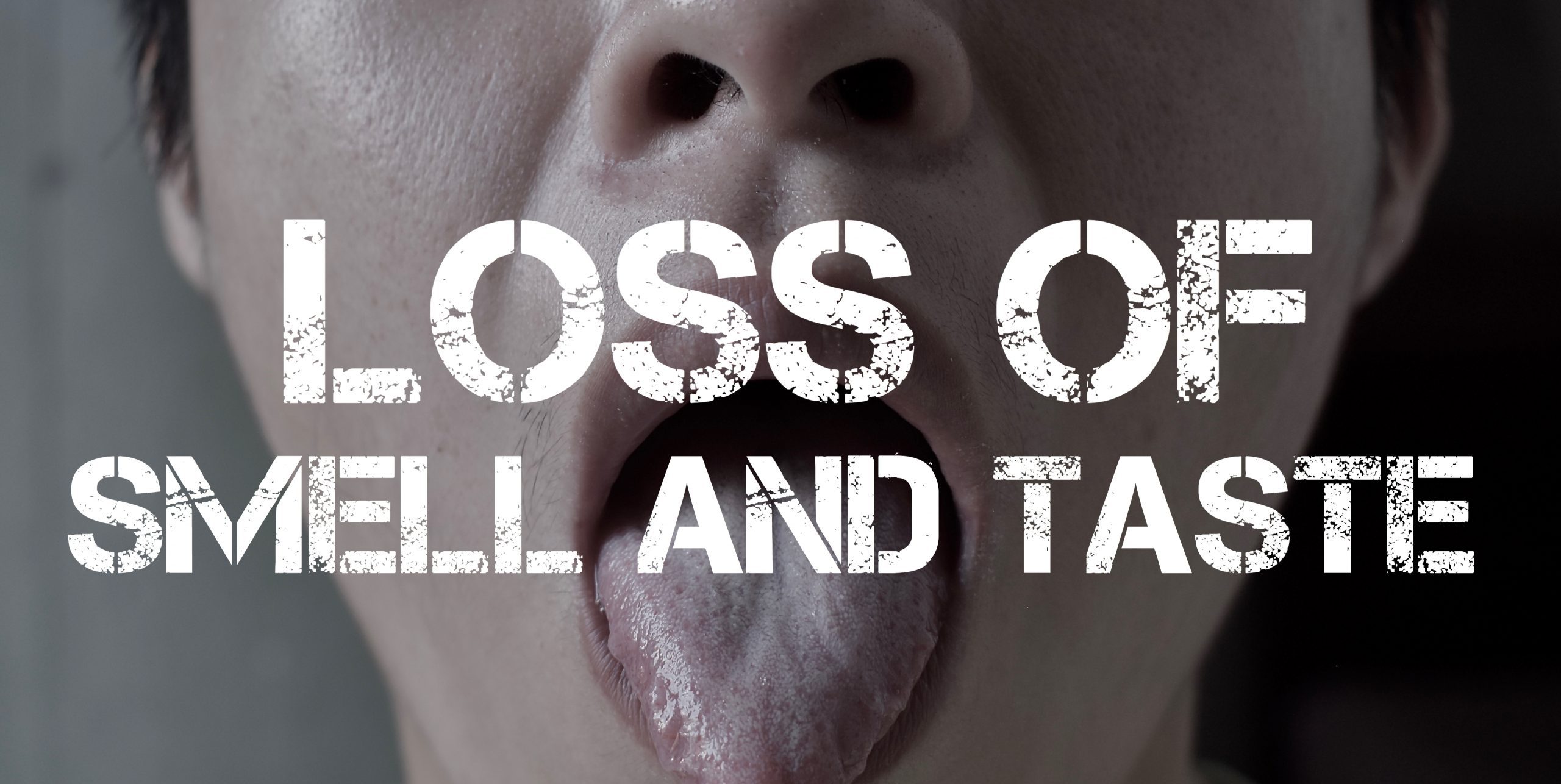Now live! RTHM Direct – simplified medication access for Long COVID, ME/CFS and related conditions. Check it out
Our sense of taste and our sense of smell play very important roles when it comes to eating. Smelling fresh bread baking or tasting the sweet flavors of your favorite chocolate chip cookie all bring back wonderful memories and, in most cases, make you hungry. But what happens when those senses are taken away completely? What happens if your taste or smell becomes distorted, leaving everything smelling and tasting putrid? When chemosensory disorders affect how you taste and smell, it is often difficult to eat. When you are unable to eat, it becomes difficult to provide your body with the nutrition it needs.
Eating with No Taste or Smell
When you experience a complete loss of taste or smell, eating loses a lot of its appeal. For most people, eating is all about the flavor and smells associated with your favorite foods. When those senses are taken away, it can greatly affect your desire to eat. When you can no longer smell or taste your food, it is important to focus on meeting your nutritional needs, despite the common loss of appetite.
Always Check Expiration Dates
Your taste and smell play a crucial role when it comes to eating, but not just for the flavor benefits they provide. Your sense of taste and smell also works as a defense mechanism when it comes to spoiled food. For example, opening an old gallon of milk that has turned sour has a very distinct and off-putting odor. Unfortunately, when you lose these senses, this defense mechanism is also lost.
If you have a complete loss of taste and smell, it is essential to always check expiration dates before eating food. If this continues to be an issue, you may wish to keep a permanent marker in your kitchen and label the expiration dates in large writing when you purchase a new food item. This is also beneficial if your Long COVID symptoms include brain fog or blurred vision.

Smell/Taste Changes and Appetite
When you can’t smell or taste the food you or your family members are preparing, eating may no longer feel enjoyable. In many cases, the lack of taste and smell affects your appetite. In fact, eating may feel like a chore. This lack of appetite and eating can lead to weight loss and poor nutrition. This can contribute to additional medical concerns. Even though you can’t taste or smell your food, it is important that you continue to eat nutritionally balanced meals throughout the day.
Choose Foods That Appeal to Your Other Senses

One way to get around the loss of senses and appetite is to look at eating and preparing meals differently. Under normal circumstances, you cook and eat based on your sense of smell and taste. When those senses are lost, it can be beneficial to focus on your other senses instead. For example, creating meals that combine different textures, such as crunchy and smooth, can create an enjoyable combination of sensations, and even make a pleasant sound. Creating colorful and visually appealing meals can make food attractive to eat. Experimenting with new foods, textures, and visually appealing creations can help you find joy in food again.
Eating with Parosmia
When you have parosmia, eating not only becomes difficult but can, in fact, make you nauseous. When everything you eat tastes and smells revolting, it can be difficult to get the nutrition you need. In fact, many find that they are only able to eat one or two foods, such as plain pasta, for instance. While this does provide some nutrients, it is not giving you the nutrient balance your body needs. But what can you do when the taste and smell of food make you sick?
Eat Smaller Meals
In many with parosmia, the taste and smell of certain foods get worse the more they eat them. In this case, eating small portions of the offensive food with foods you can tolerate can help you get the nutrition you need. Eating smaller, more frequent meals is another great way to work in the nutritional benefits of a variety of foods without causing you great discomfort.
Bland and Bold
As we mentioned above, chances are you have a couple of foods that are the go-to foods that you know you can tolerate. Creating a meal with that food as the base is a great way to start. Adding other foods with bold flavors you can tolerate, such as cinnamon, can help distract you from other smells and tastes within a meal. Combining these bland and bold flavors with other foods can often allow you to eat a full meal.
Become a Food Detective – Explore New and Different Foods
When your favorite foods are intolerable, experiment with different foods to find ones that you can tolerate the taste and smell of. This may require a lot of experimentation and different food considerations.
Serving Nutritious Foods in Different Ways
For many with parosmia, how food is served can make all the difference. For example, some people are unable to eat cooked vegetables but can eat them raw. In the case of most foods, cooking and heating can release additional smells from the food, making it more offensive to someone with parosmia. For example, baked chicken may be intolerable, but a cold-cut chicken sandwich is a safe food for you.
In addition, as you chew foods, you release additional smells into your nose, often making the food unappealing. Taking that same food and placing it into a smoothie or chilled soup that requires no chewing can often make it more appealing. For example, for many, ice cream is often a safe food. It is cold and requires little to no chewing. Consider adding fruits and vegetables to a blender and then freezing the mixture, creating a nutrient-dense ice cream alternative. If you can tolerate them, using a banana base or an avocado base can make the texture creamy.

Hydration Is Just as Important
We all know hydration is an important part of every day with men needing an average of 3.7 liters and women needing 2.7 liters. However, what happens when tap water tastes like sewage? In many cases, those with parosmia are unable to drink local tap water. In this case, turning to bottled or filtered water may be necessary. If you can tolerate lemon or lime, adding them to your glass of water may make it easier to drink.
Adding Supplements to Ensure Nutrition
If finding balanced foods becomes too difficult, you may need to consider adding some sort of nutritional supplements, such as meal replacement shakes that you can tolerate. These can help complement the foods that you can tolerate and help you receive the nutrition that your body needs. An over-the-counter multivitamin can be helpful as well if you can tolerate it. If you find iron upsets your stomach, you may have to take iron separately.
Additional Tips for Healthy Eating
If you are still struggling to find a way to eat healthy with a loss of taste and smell or with parosmia, these additional tips may help.
- Mouth Cleaning – brushing your teeth and tongue with a soft-bristled toothbrush can help keep bacteria under control and remove any bad taste left in your mouth.
- Nose Rinsing – Rinsing your nose with a saline solution can help remove particles in your nose that contribute to bad smells.
- Using ice to numb your mouth – chewing on ice or applying ice to the roof of your mouth can help to numb the mouth and the nerves responsible for taste and smell, often reducing the bad smells associated with parosmia.
- Adding tart foods as an appetizer – Try eating tart food, such as lemon or lime, before a meal to help improve flavors.
- Plug your nose when eating – wearing a nose plug while eating can often help block the unpleasant smells associated with parosmia.
- Try distracted eating – while we have always been told to avoid distracted eating as it can contribute to over-eating, distracted eating can help reduce the perception of bad smell or taste and distract you with visual or auditory stimulation.
By using these tactics, you can maintain a healthier diet despite issues with taste and smell after contracting SARS-CoV-2. With time, hopefully, you will begin to see a gradual return to your normal taste and smell. If eating becomes a concern, talk with your physician about possible nutritional supplements that can help. At RTHM, our medical specialists address all Long COVID symptoms, such as the loss of taste and smell or parosmia, and work with each individual to address these symptoms and work with you to ensure you are receiving the nutrients your body needs.

Get updates
Join our mailing list



